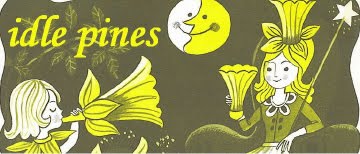Reginald Gellibrand Jennings was born in Melbourne, Victoria, in 1879 and was educated at Cumloden, St Kilda, and St. Peter’s College Adelaide. He worked briefly in business before teaching at the Queen’s School, Adelaide, and then Melbourne Grammar School from 1909 to 1913 (Bate 147). Jennings had no university degree. In 1914 he was appointed as the first Junior House Master at Geelong Grammar, a position he held from 1914 to 1932, when Junior House was transformed into Junior School with Jennings remaining as Master until he retired in 1941 due to ill health. Jennings made two visits to the United Kingdom, in 1908 and 1923. He is described by Geelong Grammar historian, Weston Bate, as being something of a legend at Geelong Grammar. Under Jennings, Junior House, then Junior School, became an institution at Geelong Grammar. During his reign Jennings implemented a "manners maketh man" policy. Boys wore Eton collars and Jennings ensured strict discipline in dress, manners and speech. Jennings divided the House into three sections which competed for points against each other in all aspects of school life. Jennings’ policies of gentrification and socialization led to mixed feelings among old boys about their schooling (Bate 147-50). Jennings died in 1943.
Jennings wrote two collections of short stories, Told in the Dormitory in 1911, and Stories of a House Master in 1933. Stories of a House Master contains selections from Told in the Dormitory and The Human Pedagogue. Both contain a number of short school stories though they amount to less than one quarter of the total contents. He also wrote a play, and an adult novel: The Threads of Yesterday. In addition to his novels, he wrote articles for Australian newspapers and education stories.
The Human Pedagogue. Melbourne: Australian Authors' Agency, 1924. 345 pages. Not illus.
The Human Pedagogue is a rich and detailed boys’ school story, modelled on classic British school stories, concerning the arrival of a sixteen-year-old English boy at an Australian public school. The Human Pedagogue is one of the few Australian school stories to be written in the first person, the only other examples were by Robert Richardson. The use of this style of narrative allows the narrator to discuss his school experiences intimately. Despite the title of the story, suggesting an emphasis on the teacher, in this case the Housemaster, Bolt, the book focuses on the narrator’s experiences at school and his friendships with contemporaries, Spider and Barney, and Sixth Formers, Linacre and Farr. The latter two were close friends but fell out when Farr was made House Captain. At times the unnamed narrator plays a background role in the story, an observer of the people and events around him. Typical scenes of public school life including school discipline, chapel and sport as well as its darker aspects such as smoking and cribbing are explored in detail by Jennings, who draws on his experience as a longstanding House Master at Geelong Grammar School to provide one of the most comprehensive portrayals of fictional public school life in Australia. The narrator of The Human Pedagogue is often used as a mouthpiece by Jennings to discuss his views on the adaptation and practice of the public school system in Australia. In common with boys’ school stories of the period, Jennings explores the impact of war on public schools with several Sixth Formers enlisting in the war.



Geelong’s positive psychology program, now years in the making, is comprehensive and impressive.
ReplyDelete